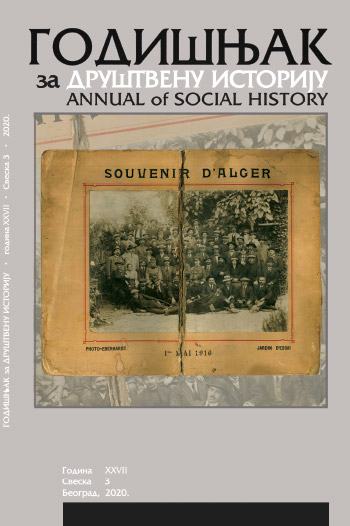Studenti iz Afrike u socijalističkoj i nesvrstanoj Jugoslaviji: Prilog istraživanju slike „Drugog“
Students from Africa in socialist and nonaligned Yugoslavia: A Contribution to researching the image of the Other
Author(s): Nemanja RadonjićSubject(s): Cultural history, Local History / Microhistory
Published by: Udruženje za društvenu istoriju
Keywords: Yugoslavia; Africa; students; solidarity; anti-racism; image of the Other; nonalignment; socialism
Summary/Abstract: This article argues for the examination of students from Africa and their experiences in Yugoslavia in a global, socialist and nonaligned context. Being a part of a larger movement of African diaspora towards Europe, including the socialist bloc opens opportunities for comparation. However, some of the existing work on the topic, or articles and books that use the „position“ and image of African students in Yugoslavia for a broader argument, eschew the historical context or do not provide evidence for their wide reaching theories. Students from African countries came to Yugoslavia in thousands in search for education. Their stay was marked by forming specific images of the Other. While in the sixties, the state tried to enforce more control both on the students and the images, using them as anti-colonial icons, from c. 1968 these perceptions diversified. Contrary to some claims, racism was not rampant, cultural supremacy was not the basis of the image of African students. Quite the opposite, evidence suggest that the specific position of Yugoslavia benefited the image of Africans as part of nonaligned world, and an internal confirmation of Yugoslavia’s global role. True, the relative liberalization of Yugoslavia enabled various images to circulate more freely than in the Eastern Bloc, but the overwhelming majority of Yugoslavs nurtured positive images of Africans. As testified in grassroots solidarity actions, youth surveys, and the activities of Clubs of international friendship, Yugoslavs continued to form images of African students based on international solidarity.
Journal: Godišnjak za društvenu istoriju
- Issue Year: 2020
- Issue No: 3
- Page Range: 23-53
- Page Count: 31
- Language: Serbian

